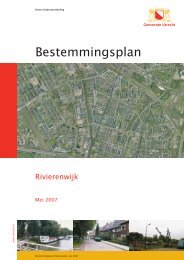freakonomics
freakonomics
freakonomics
You also want an ePaper? Increase the reach of your titles
YUMPU automatically turns print PDFs into web optimized ePapers that Google loves.
Fantastic<br />
Spacious<br />
!<br />
Charming<br />
Great Neighborhood<br />
Three of the five terms correlated with a higher sales price are physical descriptions of<br />
the house itself: granite, Corian, and maple. As information goes, such terms are specific<br />
and straightforward—and therefore pretty useful. If you like granite, you might like the<br />
house; but even if you don’t, “granite” certainly doesn’t connote a fixer-upper. Nor does<br />
“gourmet” or “state-of-the-art,” both of which seem to tell a buyer that a house is, on<br />
some level, truly fantastic.<br />
“Fantastic,” meanwhile, is a dangerously ambiguous adjective, as is “charming.” Both<br />
these words seem to be real-estate agent code for a house that doesn’t have many specific<br />
attributes worth describing. “Spacious” homes, meanwhile, are often decrepit or<br />
impractical. “Great neighborhood” signals a buyer that, well, this house isn’t very nice<br />
but others nearby may be. And an exclamation point in a real-estate ad is bad news for<br />
sure, a bid to paper over real shortcomings with false enthusiasm.<br />
If you study the words in the ad for a real-estate agent’s own home, meanwhile, you see<br />
that she indeed emphasizes descriptive terms (especially “new,” “granite,” “maple,” and<br />
“move-in condition”) and avoids empty adjectives (including “wonderful,”<br />
“immaculate,” and the telltale “!”). Then she patiently waits for the best buyer to come<br />
along. She might tell this buyer about a house nearby that just sold for $25,000 above the<br />
asking price, or another house that is currently the subject of a bidding war. She is careful<br />
to exercise every advantage of the information asymmetry she enjoys.<br />
But like the funeral director and the car salesman and the life-insurance company, the<br />
real-estate agent has also seen her advantage eroded by the Internet. After all, anyone<br />
selling a home can now get online and gather her own information about sales trends and<br />
housing inventory and mortgage rates. The information has been set loose. And recent<br />
sales data show the results. Real-estate agents still get a higher price for their own homes<br />
than comparable homes owned by their clients, but since the proliferation of real-estate<br />
websites, the gap between the two prices has shrunk by a third.









